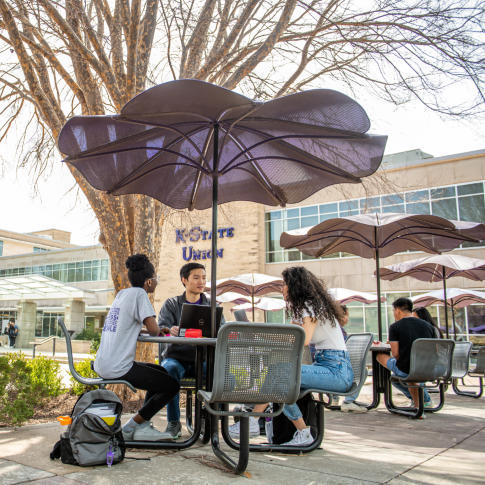
Division of Academic Success and Student Affairs
Supporting the academic success and personal development of students inside and outside the classroom.
Creating a holistic K-State experience.
College is about more than classes. That's why we provide an impactful and holistic experience by aligning student life resources with academic support programs and services.
Cross-campus collaboration
Skills to thrive in your life pursuits
Success inside and outside the classroom
Welcoming space for all Wildcats
We focus on our students' academic and career engagement, their holistic well-being, how they experience and build community, and providing a welcoming environment for all.
How can we help you succeed?
You don't have to do college alone.
24/7 Support
As a K-State student, you get free, on-demand support no matter the circumstance through TimelyCare.


